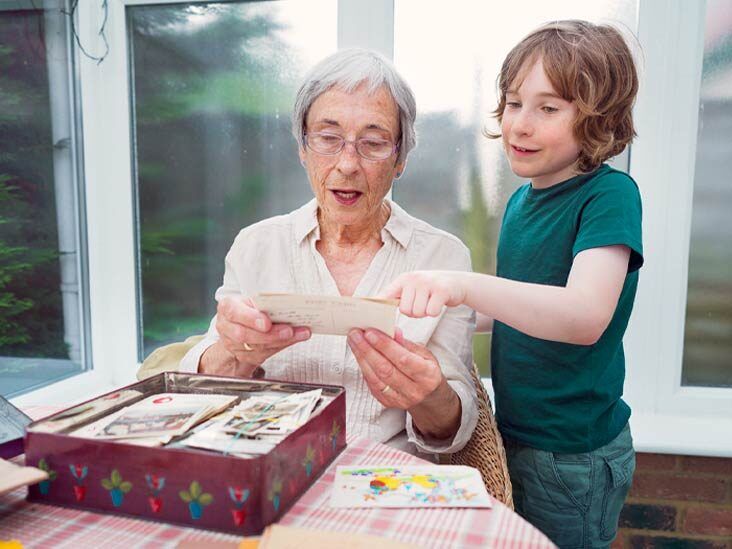There is currently no way to prevent Alzheimer’s disease, but researchers are looking for ways to slow, delay, or possibly prevent it.
Researchers are studying treatments and strategies that may help prevent Alzheimer’s disease, including:
- cognitive training
- physical exercise
- blood pressure management
- diabetes and depression treatment
- social interaction
- sleep interventions
- vitamins such as B12, D, and folic acid
Read on to learn more about the ways you may be able to lower your risk.
There are many steps you may be able to take to lower your chances of developing Alzheimer’s disease. But it’s a good idea to talk with a doctor before making any major lifestyle changes.
Eat a nutritious diet
Some evidence suggests a Mediterranean diet may decrease the chances of developing Alzheimer’s. In a
A Mediterranean diet includes little red meat and emphasizes:
- whole grains
- fruits and vegetables
- fish and shellfish
- nuts
- olive oil and other healthy fats
Other
People in the studies included in the review ate the following types of berries:
- blueberries
- blackberries
- raspberries
- strawberries
- cranberries
Other
Keep up your mental exercise
Keeping your brain active may reduce your chances of developing Alzheimer’s. Activities that may be helpful include:
- reading newspapers or books
- playing puzzle games and engaging in other challenging activities
- visiting museums
- learning a new language
Engaging in mental exercise seems to create or contribute to your cognitive reserve, helping you develop new neurons and pathways in your brain.
Why is this important? Usually, your brain has just one road for transporting information from point A to point B. If there’s a roadblock or a dead end, the information won’t make it. People who develop new ways of thinking through mental exercises
Increase your social engagement
Keeping up your engagement with others may help prevent Alzheimer’s or reduce your chances of developing it. In a
Social activities help exercise your brain by engaging mental skills.
Exercise daily
Daily exercise may help prevent multiple types of dementia or help reduce symptoms in people who have the disease.
The authors of a
Quit or reduce smoking
Smoking may increase your chance of developing dementia, including Alzheimer’s. There is an
If you smoke, quitting can be beneficial for many aspects of your health, including brain health. You can talk with a doctor about methods that could work for you.
Get more B vitamins to lower your homocysteine levels
Homocysteine is an amino acid that is a building block of protein. It naturally circulates in your blood. An
- Alzheimer’s
- vascular dementia
- cognitive impairment
Foods high in folate (folic acid) and other B vitamins, such as B6 and B12, seem to lower homocysteine levels. But it’s not yet known whether increasing your intake of these B vitamins might offer a protective effect against Alzheimer’s.
Food sources of folate
- romaine lettuce
- spinach
- asparagus
- broccoli
- mustard greens
- peanuts
- banana
- tomato juice
- papaya
Food sources of B6
- chickpeas
- poultry
- banana
- spinach
- salmon
- fortified cereals
Food sources of B12
- fish
- red meat
- fortified nutritional yeast and cereal
- poultry
- eggs
What triggers Alzheimer’s?
Researchers do not know yet what causes Alzheimer’s or triggers the onset of symptoms. But the disease tends to occur more often in people who have a family history of it, those who are 65 years old or older, and those who have cardiovascular disease.
Can Alzheimer’s be prevented if caught early?
Early diagnosis cannot reverse the changes that Alzheimer’s causes. But early diagnosis may help
Who is more likely to get Alzheimer’s?
You
Researchers don’t yet know how to prevent Alzheimer’s disease. But there are many ways that you may be able to lower your chances of developing it.
Staying mentally and physically active, eating a nutritious diet, and keeping an active social life may help reduce your risk of experiencing cognitive decline, including Alzheimer’s. All those habits can also help you maintain your overall health.






